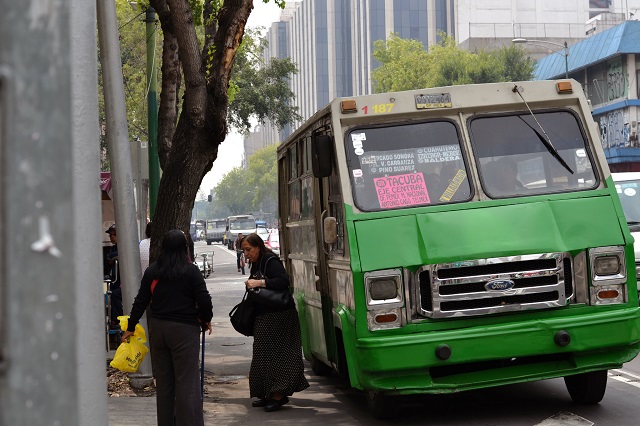
In cities around the world, the sudden and sustained drop in public transport ridership during COVID-19 has caused a financial and operational crisis for both large public transport agencies and semiformal service providers. In most places, existing business models and funding arrangements became inadequate to provide essential services and to maintain the long-term viability of the sector.
This is especially true in Latin America, where public transportation is divided between formal and semiformal operators. The formal systems (such as rail and high-capacity buses) have access to public capital. Their finances include subsidies paid through public budgets, fares, rents of commercial premises and the sale of the advertising space. In contrast, semiformal operators have little access to capital or such diverse revenue streams. Semiformal operators are services that are legally authorized but do so under informal practices: dispersed property, daily rent of vehicles to drivers, lax compliance with labor laws and income dependent on fares.
The semiformal sector is incredibly important to local transportation across Latin America. The Development Bank of Latin America, CAF, analyzed urban mobility in 15 metropolitan areas across the region and found that out of 214 million trips made daily, 92 million (43%) are completed by “public transport,” a category that includes most semiformal service providers. In Mexico City, prior to the pandemic, semiformal transport represented 74% of the trips made by public transport.
Although several operators have tried to keep services running throughout the pandemic, lower demand and various restrictions have devastated the semiformal transport sector. The pandemic has demonstrated the weakness of a business model based on maximizing income through user fees and has increased the precariousness of informal workers, as they are often not eligible for government support due to their precarious organizational structures.
Given residents’ dependence on semiformal services, local and federal governments must include this sector in plans for reactivation and financial support of transit service following COVID, and in doing so, they can also encourage a transformation to new operating and business models.
A Proposed Program of Action
In Mexico, while local authorities have made efforts to improve operators’ outcomes – from granting support for sanitation to optimizing operating schemes – this is not enough given the loss of user fares. The pandemic is estimated to have lost public transport 19 billion pesos ($909 million) for 2020, with the semiformal sector accounting for more than three quarters of that loss, according to the Mexican Association of Mobility Authorities (AMAM).
Unlike formal transit, semiformal transit is completely dependent on fares for 99% of all revenue.
The transport and mobility authorities that make up the AMAM, which includes WRI Mexico, have proposed a new national policy for the semiformal sector that incorporates the needs of semiformal operators. The proposal seeks to improve financial stability and maintain quality of service for the many individual and small semiformal operators in the country.
First, we propose to support the semiformal sector with government-backed credit guarantees to support access to formal capital structures. The national policy should include the provision of public resources to make such financing possible and accessible.
Second, we propose a progressive tax scheme to promote formalization. Semiformal operators remain semiformal in part to mask their potential tax liability. Any plan to bring more accountability to this sector will require gradual and progressive tax schemes. An initial period where Value Added Taxes (VAT) on fuel and wage taxes on labor are credited by the federal government will incentivize formalization. In particular, wage taxes that support social security enable workers to have additional protections that provide job and income security.
Finally, we propose to renew the critical bus sector by providing national funds to promote investment in bus infrastructure and fleet renewal among current semiformal operators. This would also be a means to encourage formalization. Bus concessions contracts and business models should be reviewed and adjusted with a focus on quality of service, which includes fleet modernization. This process could also be aided by a reduction of tariffs on the importation of buses.
In the medium term, the federal government should consolidate a policy for local governments with the recommended regulatory framework and explore alternative sources of funding and financing for semiformal operators. This means finding dedicated fees that could be used to support the credit, investment and organizational needs of semiformal operators towards formalization, including funds raised via parking meters, congestion charges, land value capture, and taxation that supports the expansion of urban services. Some local governments in Mexico have already implemented financing mechanisms, such as the Government of the State of Jalisco, which has dedicated funds for bus fleet renewal from speed camera penalties.
Beyond the financial means above, it is essential to incorporate incentives to transform the sector towards better quality of service. Mexican cities are at a unique moment, with so much reliance on semiformal providers and so little clarity on the future of these providers. The framework above is just the start, but it can help to clearly define the issue in order to work towards a solution. Such a federal support program is also clearly aligned with vision of the proposed Mobility and Road Safety Law, which is being discussed within the federal chamber of deputies now.
The Mobility and Accessibility Lab is a project to improve mass transport systems around the world through local capacity building and action. WRI offices work in their countries to develop programs that improve the quality, accessibility and usefulness of mass transit. The scope of each project varies, but they are united in pushing the boundaries of what is possible under local governance to improve quality of life and environmental sustainability through transit. These projects are funded in part by a generous grant from FedEx.
José Hernández is a Technical Specialist in Mobility at WRI México.
Adam Davidson is an Urban Mobility Associate at WRI Ross Center for Sustainable Cities.








